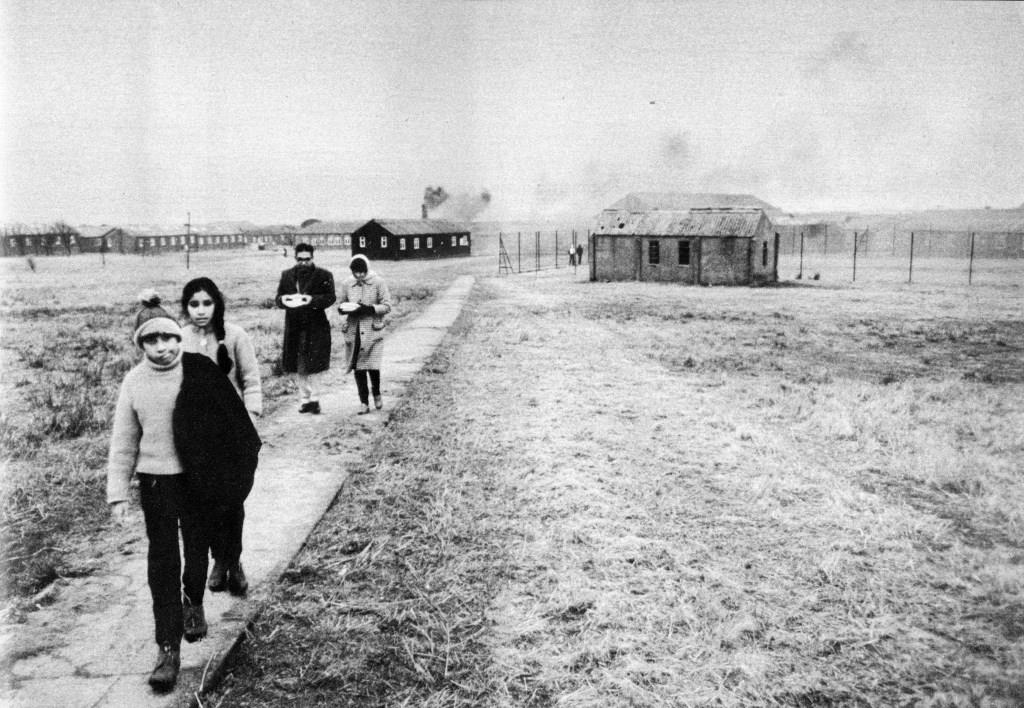Guest post by Jordanna Bailkin
Photograph of Ugandan Asians at Tonfanau camp by Jim Arnould, Nova (April 1973)
Today, as the 20th anniversary of Refugee Week marks the contribution of refugees to British life, very few people think of Britain as a land of camps. For many Britons, camps seem to happen “elsewhere,” from Greece to Palestine to the global South. Yet during the 20th century, dozens of camps in Britain housed hundreds of thousands of Belgians, Jews, Basques, Poles, Hungarians, Anglo-Egyptians, Ugandan Asians, and Vietnamese. These largely forgotten sites remind us that Britain’s track record on refuge is not just about the politics of entry and exit – letting people in or keeping them out – but also how they are cared for after they arrive.
In Britain, refugee camps were spread out all over the country, from the heart of London to the tiniest villages. Refugees slept in holiday chalets and concrete bunkers, in military bases, prisons and stately homes. Some camps were tightly controlled, with barbed-wire perimeters and armed guards. Some camps were virtually ignored by locals; others completely transformed the nature of nearby towns. People could be encamped for just a few days, or for decades.
Perhaps one of the strangest refugee camps was Tonfanau, located in a bleak corner of Welsh-speaking North Wales. Here, hundreds of Ugandan Asians (expelled from Ugandan by Idi Amin in 1972) huddled over heaters amid wartime wooden sheds, all of which had been deserted by the army three years earlier. Miles from any industrial center, squeezed between mountains and the stormy sea, the camp was marked by a barbed-wire fence and a sign that said, “Beware of the firing range.” As Asians in other camps went on hunger strike to protest the quality of food and racial segregation in the dining halls, the Welsh happily adopted the camp shop as their local delicatessen, dining out at Tonfanau to enjoy exotic treats.
As the history of Tonfanau suggests, refugee camps in Britain brought a startling variety of people into contact, creating unique intimacies and frictions. The interactions between refugees and citizens that took place in these camps can’t be easily characterized as hostility or benevolence, prejudice or tolerance. Instead, they reveal a morally complicated story about empathy, solidarity, and activism.
It is difficult to imagine a space like Tonfanau existing in Britain today. As Britain’s asylum policies have become more restrictive, the refugee camp has been pushed out of Britain and across the Channel. Within Britain, the refugee camp has been replaced by the immigration detention center. At a time when the future of refuge may be not in a camp, but in a cell, it is vital to remember that the spaces in which refugees have lived are all around us, even in the heart of liberal democracy itself. We are still standing on their ground.
Jordanna Bailkin is the Jere L. Bacharach Endowed Professor in International Studies in the Department of History at the University of Washington. She is the author of three books, including Unsettled: Refugee Camps and the Making of Multicultural Britain (Oxford, 2018).
